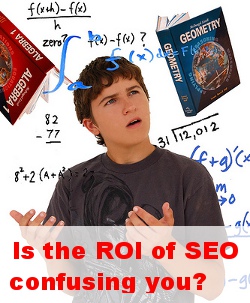
I was taught that it is not nice to call somebody a liar, but if you hear these things from a search engine optimizer, there is a good chance they are lying to you. They are either lying about the facts, or lying that they know the job of SEO. In either case, it is unreliable information that can cost companies a lot of money and can have some disastrous results.
Let’s have some fun and review these common lies told by SEO. If you have stories to tell, please add your experience in the comments of this blog post.
SEO Lie Number One: Meta Tags
One of the most common lies I have ever heard is when the SEO says, “You just need some keyword meta tags to improve your ranking.” The truth is that meta descriptions are important, but the keywords tag is mostly meaningless. Meta tags are a minor part of SEO and if somebody tells you that adding meta tags is your answer, they are lying to you. Here is some more information on the topic: “SEO Meta Tags: Oh, You Must Be Another SEO Expert!”
SEO Lie Number Two: Search Engine Submissions
Here is one of my favorite SEO lies. The SEO says something like “We will submit your website to 40,000 search engines and directories.” This is not only an ineffective thing to do, it can also be very damaging when your website links are in a bunch of penalized websites called “link farms”. The same thing goes for other methods of reciprocal link exchange.
If you just must submit your website somewhere to make you feel productive, submit it to DMOZ. Otherwise, leave it to the search engines. They will find you if you have something that other people believe is worth linking to.
Never trust the SEO who sells directory submissions and pink ponies. REF: SEO Directory Submissions and Pink Ponies For Sale
SEO Lie Number Three: Guaranteed Search Engine Ranking
Here is a lie I see a lot, and I often wonder how many people actually fall for it. The SEO lie sounds like this: “We guarantee number one results in Google.” The big problems here are often twofold. First, the “top ranking” they offer is for weak search phrases which do not convert to more business. Secondly, the guarantee is worthless because it came from a liar.
If you want to know about reasonable guarantees the SEO can make, read “7 SEO Guarantees: Yes, Guaranteed SEO Can Be Legitimate!”
SEO Lie Number Four: It Will Be Cheap
Inexperienced search engine optimizers will often tell this lie: “Sure, we can get you ranked high in search engines for under $300.” This one is absurd, because if it was true, don’t you think every one of your competitors would have done it, too? This is a sign of the SEO who really does not want a long-term relationship with you, but rather prefers to just agree with you and take your $300 instead of telling you the truth.
SEO Lie Number Five: Technology vs. Marketing
One of the worst lies is when the SEO will lead you to believe that SEO is mostly about a bunch of high-tech stuff that you would not understand. Yes, there are a lot of technical and mathematical aspects to SEO, but that is far from the whole truth. The truth is that if you give people what they are looking for, you will be found. Delivering something awesome is what really matters. You must stop trying to sell jumbo jets to jelly bean customers. Good SEO requires good marketing, and not just good technology. If they told you otherwise, I strongly suggest reading “Search Engine Optimization is Not a Technology Job!”
SEO Lie Number Six: The SEO Doesn’t Rank
Any SEO who does not have a highly ranked website of their very own is almost surely lying. There is no good excuse that a qualified SEO can provide that their own website is not ranked highly and receives a substantial amount of traffic. I have heard them try to lie their way around this and say, “Oh, but we have a whole bunch of websites, and our traffic does not all just come from one or two websites.” My question is this: With all of those websites, why are none of them ranking in search engines? The answer is that they actually do not know how to do the job without being penalized in search engines. Count on it!
There are some reliable ways to know the difference between a good SEO and a bad SEO. Their website is a big indicator. I suggest reading this article: “Good SEO vs. Bad SEO: How to Tell the Difference”
SEO Lie Number Seven: Cold Calling / Emailing SEO
If the SEO is cold calling you on the phone or emailing you offers to provide you with top listings, look out for the worst. Doesn’t it make sense that if the SEO was good at what they do, they would catch your eye in the same way they propose to help people find you? I do not mean to knock every SEO who ever called a prospect for business, but if they are doing their job well, plenty of people are finding them every day. I wrote more about this in the article titled “Find Good SEO: Why Good SEO Don’t Seek Your Business”
For your enjoyment, I have included a video to better understand the SEO liar.
What do you think? Have you heard any interesting lies from search engine optimizers / Internet marketers?





